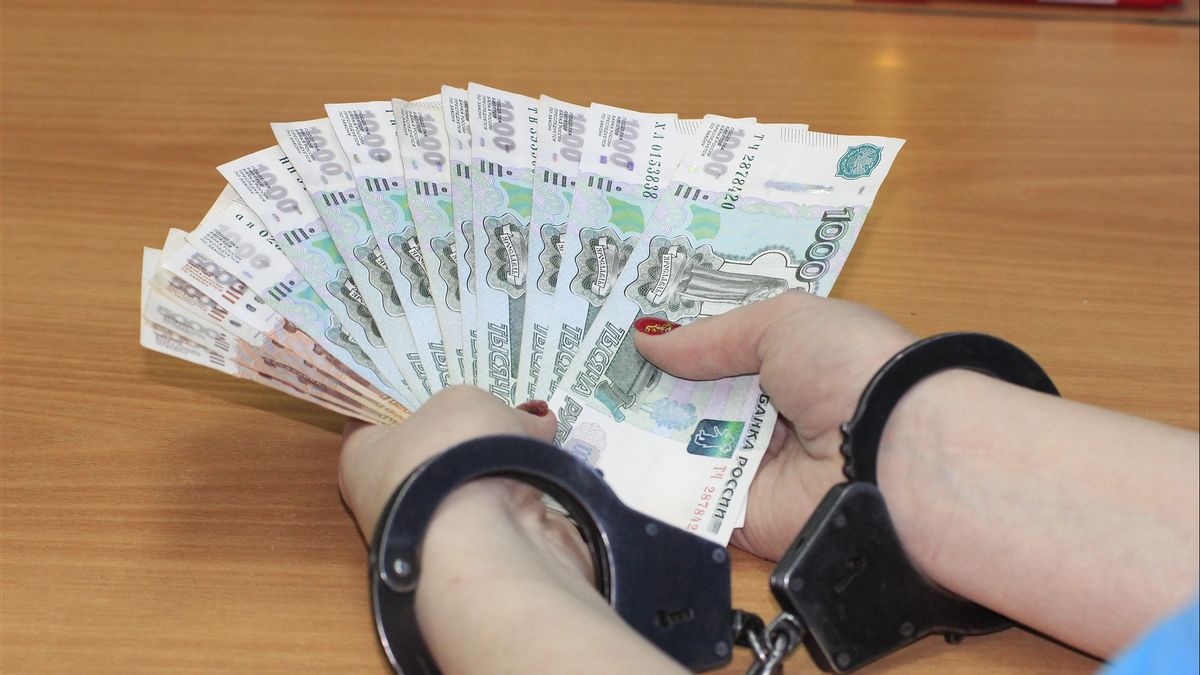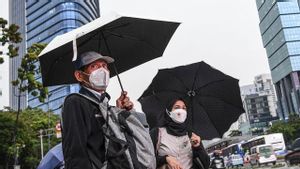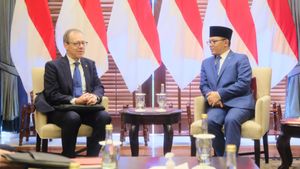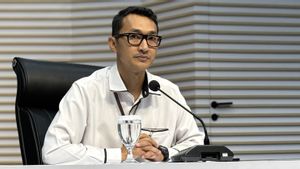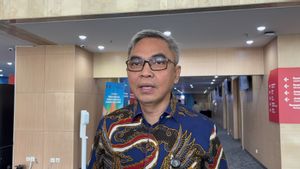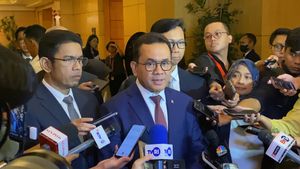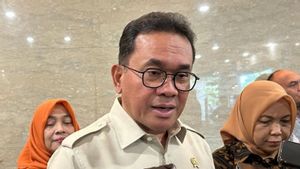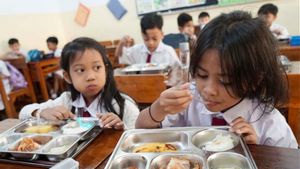JAKARTA - The Corruption Eradication Commission (KPK) assesses that the budget for handling COVID-19 is prone to corruption. KPK chairman Firli Bahuri even said that there were four items from the budget of Rp. 405 trillion and Rp. 56.67 trillion which were prone to fraud.
The description of this corruption-prone budget post was conveyed by Firli after he heard a request from the Chairman of Commission III of the Indonesian Parliament Herman Herry in a Hearing Meeting (RDP). At that time, Herman asked the KPK to play an active role in maintaining the budget related to handling COVID-19.
"The KPK must play an active role in monitoring. As we know, the government has budgeted a very large amount of the budget for handling COVID-19, reaching IDR 405 trillion," Herman said in a meeting broadcast on the DPR RI YouTube account, Wednesday, April 29.
Herman considered that the KPK should not only focus on prosecution. According to him, prevention must also be implemented to maintain the budget.
This PDIP politician emphasized that the relationship between the KPK and the central government and local governments is strengthened. The goal is that the allocation and use of the budget for handling Covid-19 can be monitored from the start.
After the central and local governments, the KPK was asked to strengthen relationships with other institutions that could help eradicate corruption, such as LKPP, BPK, and BPKP. Because, corruption eradication cannot be carried out alone.
Firli responded that the KPK had mapped at least four posts that were prone to corruption. In addition to mapping, at this post, the institution has made efforts to take precautions.
The first post that is prone to corruption is the procurement of goods and services. He said, in this post, collusion, price mark-ups, kickbacks, conflicts of interest and fraud often occur.
As a precaution, the KPK issued Circular Number 8 of 2020 on April 2 regarding the Use of the Goods / Services Implementation Budget in the Context of Accelerating Handling of COVID-19 Related to the prevention of corruption.
Then the second posts that are prone to corruption are those related to philanthropy or donations from third parties. To avoid corruption in this second post, said Firli, his institution had provided guidance through KPK Letter Number B / 1939 / GAH.00 / 01-10 / 04/2020.
The letter, issued April 14, contains guidelines for task forces at the national or provincial level, ministries, agencies and local governments. "Potential vulnerabilities in recording receipts, distribution of aid, and misuse of assistance," said Firli.
The next vulnerable posts are those related to refocusing and reallocating the COVID-19 budget for the APBN and APBD. The KPK assesses that the vulnerability in this post lies in the allocation of sources of funds and expenditures as well as utilization in the regions.
So that coordination with ministries, institutions, and local governments in carrying out budget reallocation continues to be carried out then continued with monitoring. The KPK will also provide recommendations if the monitoring results are found to be unusual.
The last corruption-prone post is social assistance by the central and local governments. "The KPK identifies critical points in receiving data collection (assistance), clarification and validation of data, shopping for goods, distribution of aid, and supervision," said Firli.
To prevent fraud, he said, the KPK had coordinated with related ministries to use Integrated Social Welfare Data (DTKS).
Firli also said that the KPK will oversee data collection, data clarification and distribution of assistance so that social assistance is accepted by the community.
"We created a joint task force of Deputy for Prevention and Enforcement," he said.
Firli said that currently this prevention has been continuously implemented. So, whoever is caught doing budget corruption for disaster management such as the COVID-19 outbreak can receive a severe punishment.
"For those who commit corruption in a disaster situation there is no other choice. We enforce the law, namely the death penalty," he concluded.
The English, Chinese, Japanese, Arabic, and French versions are automatically generated by the AI. So there may still be inaccuracies in translating, please always see Indonesian as our main language. (system supported by DigitalSiber.id)
